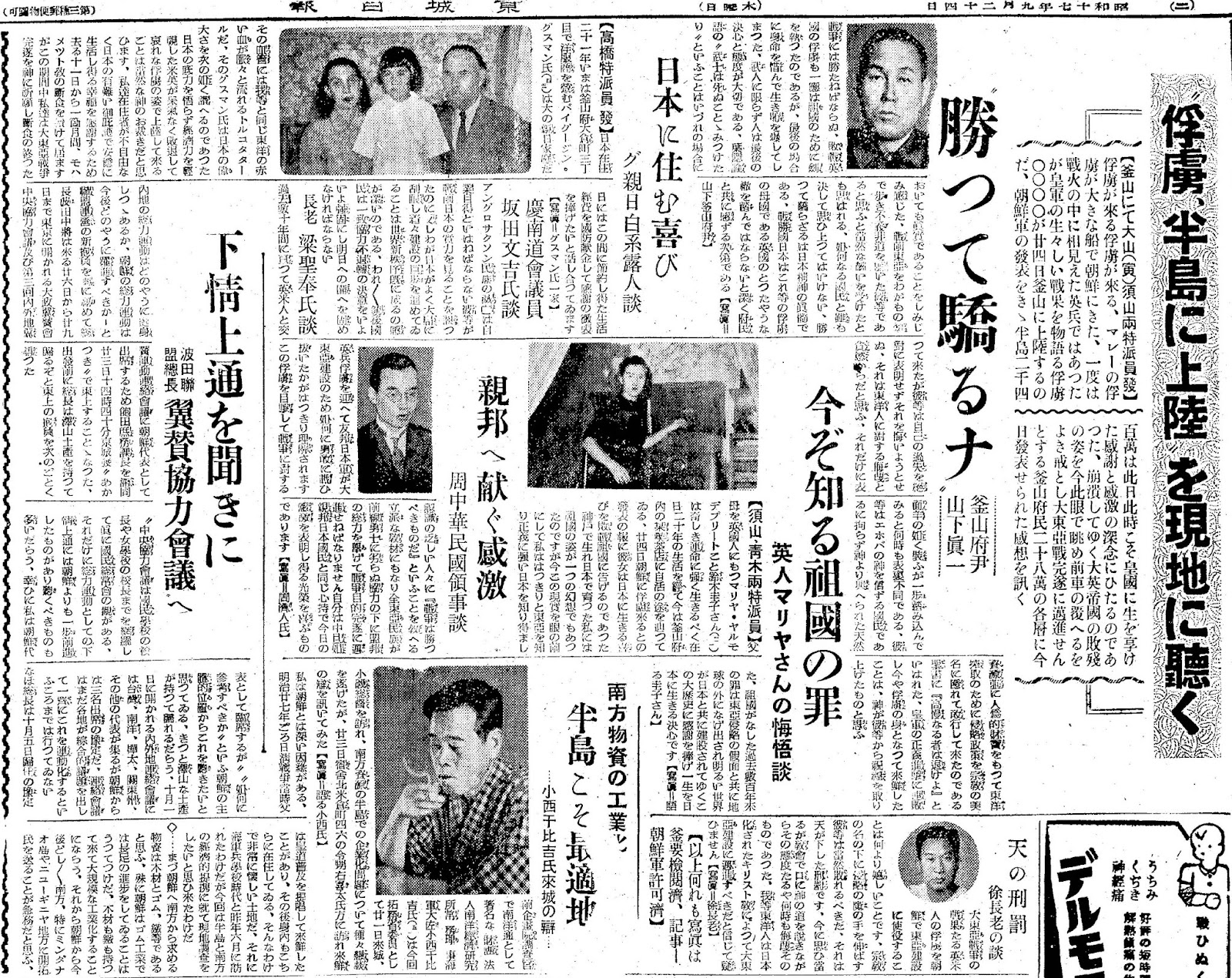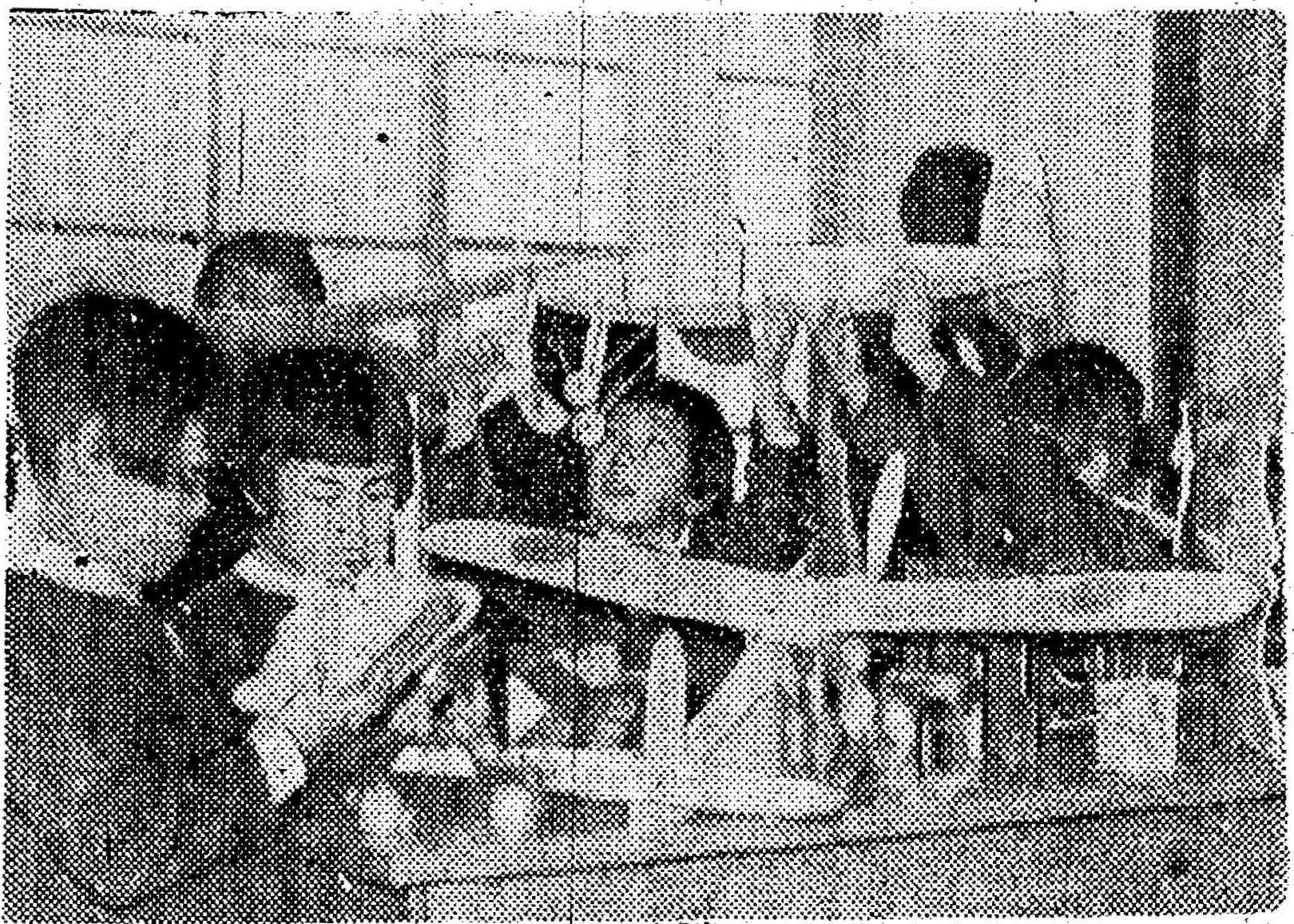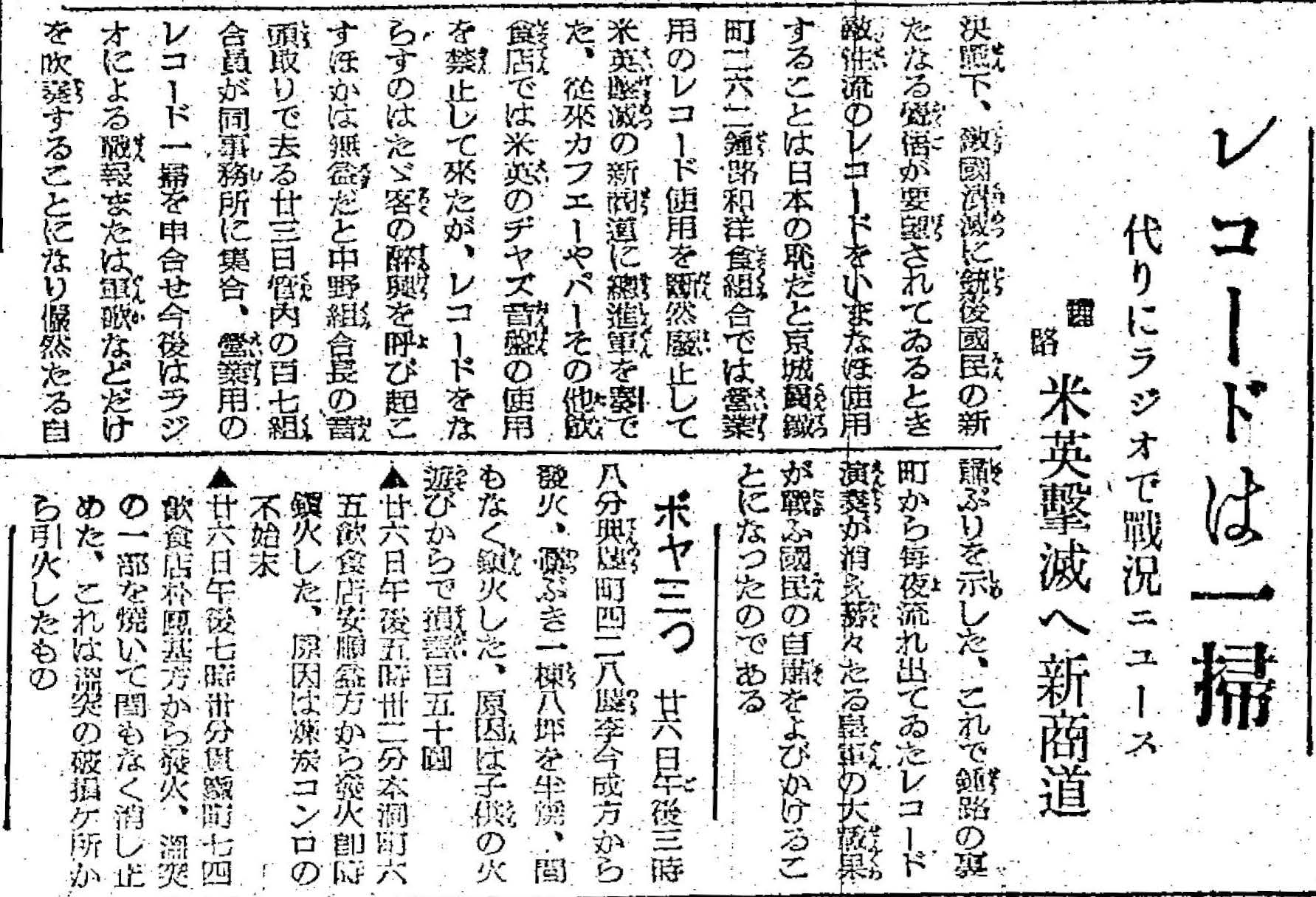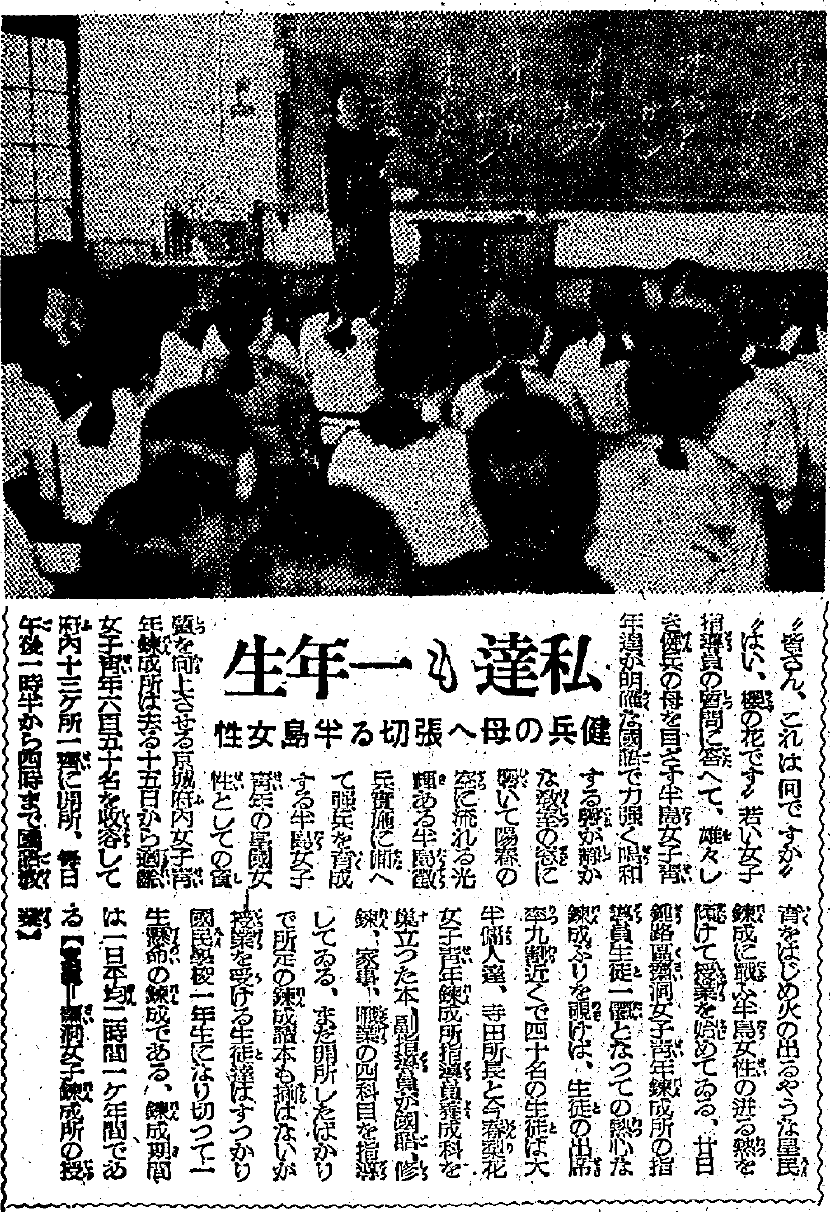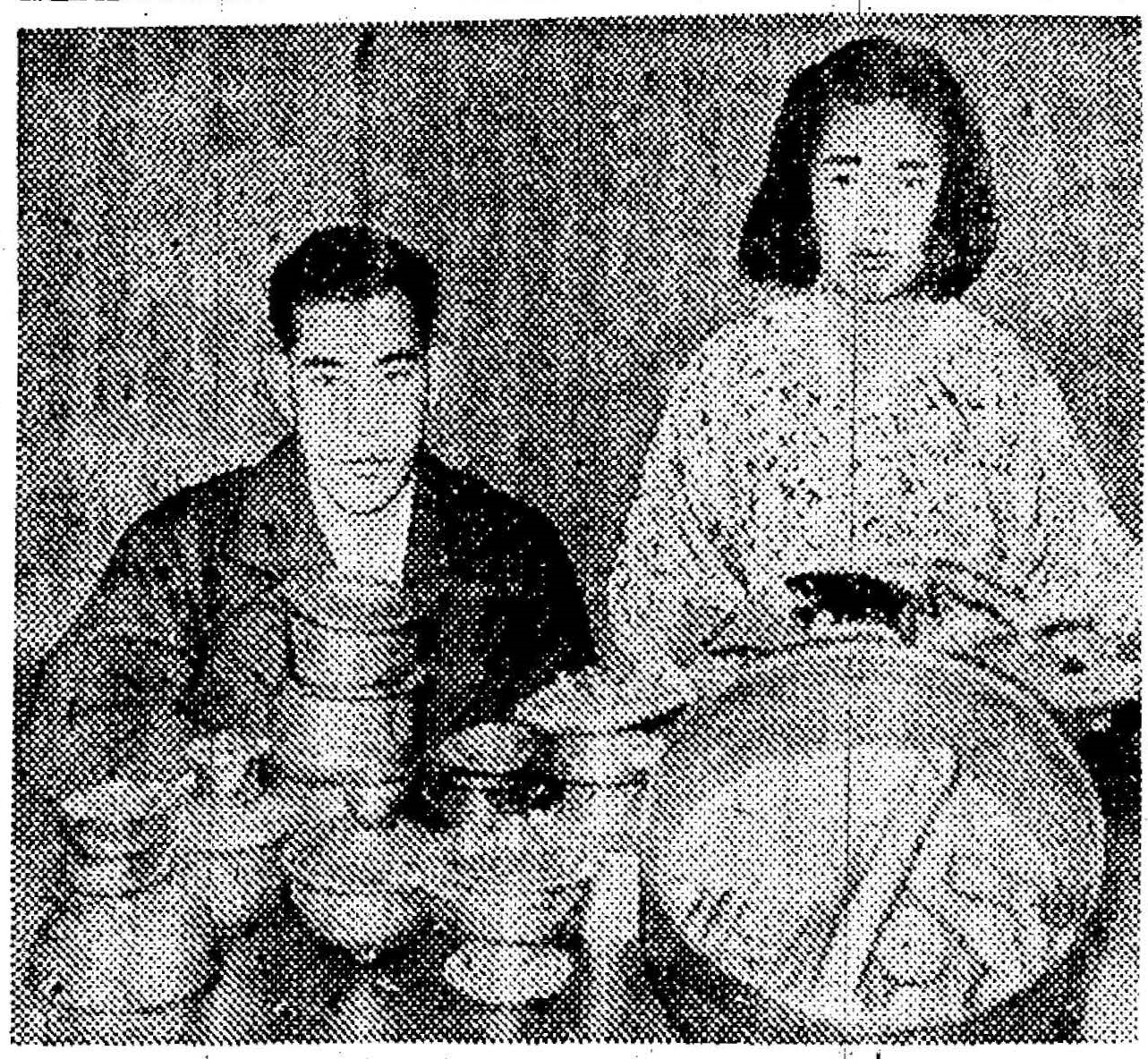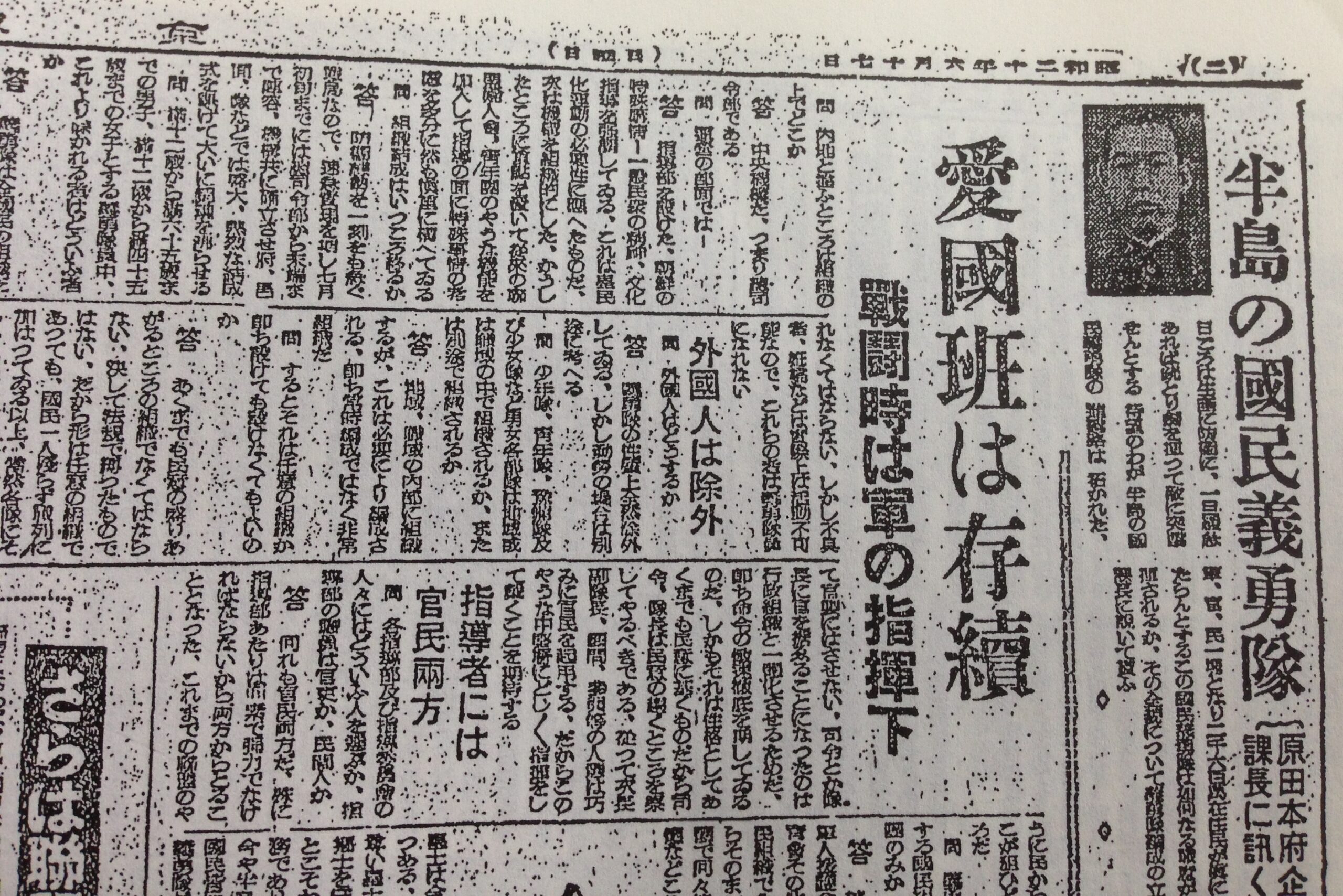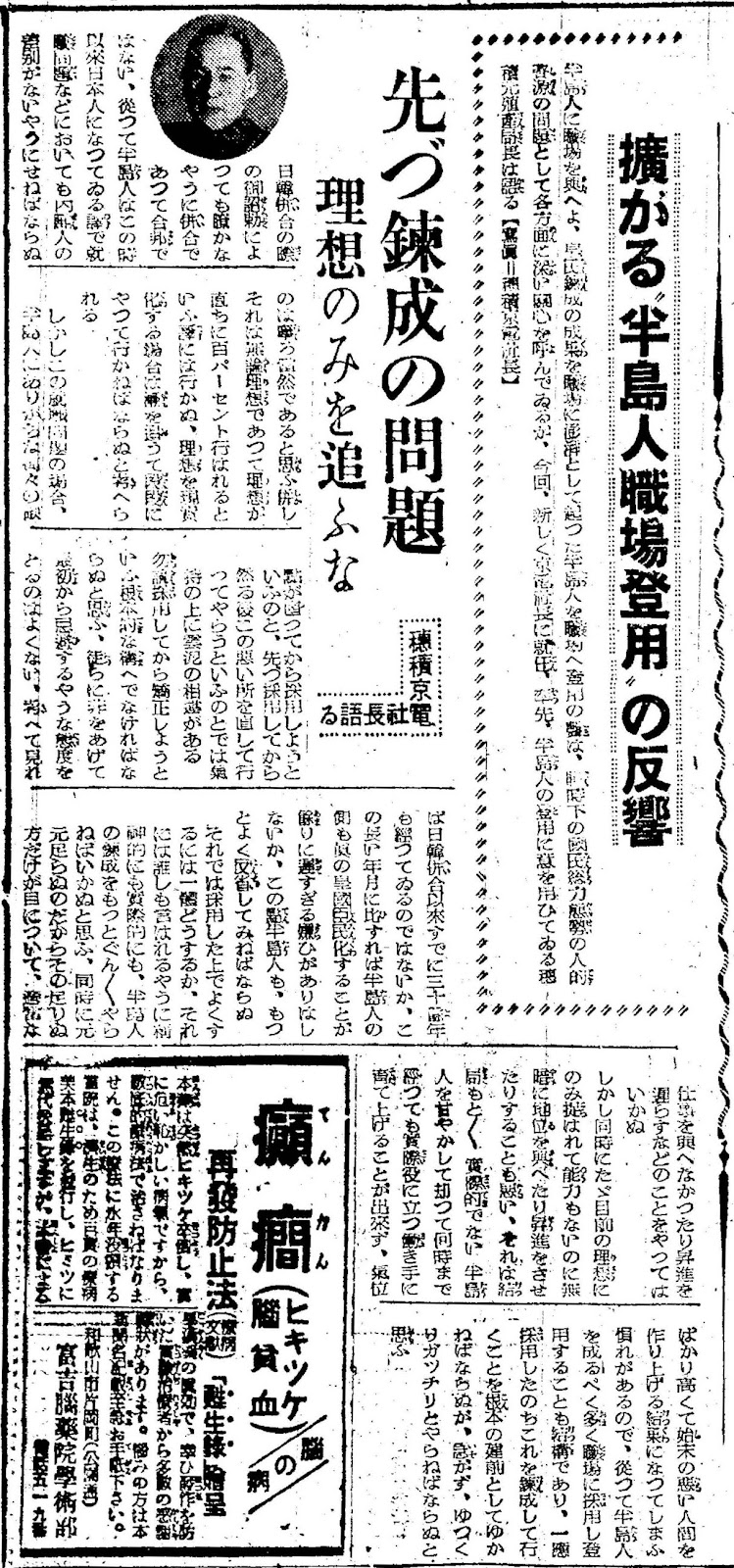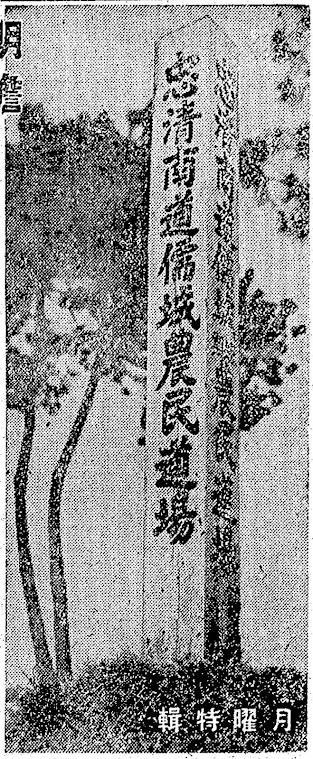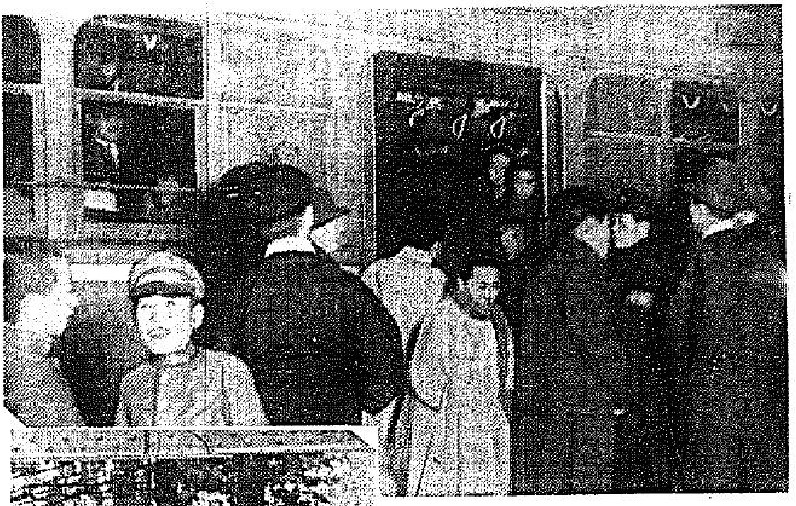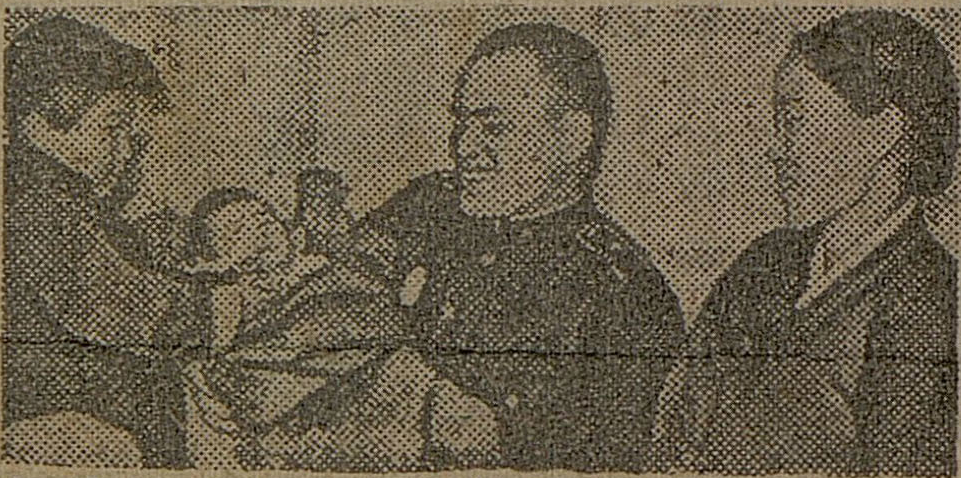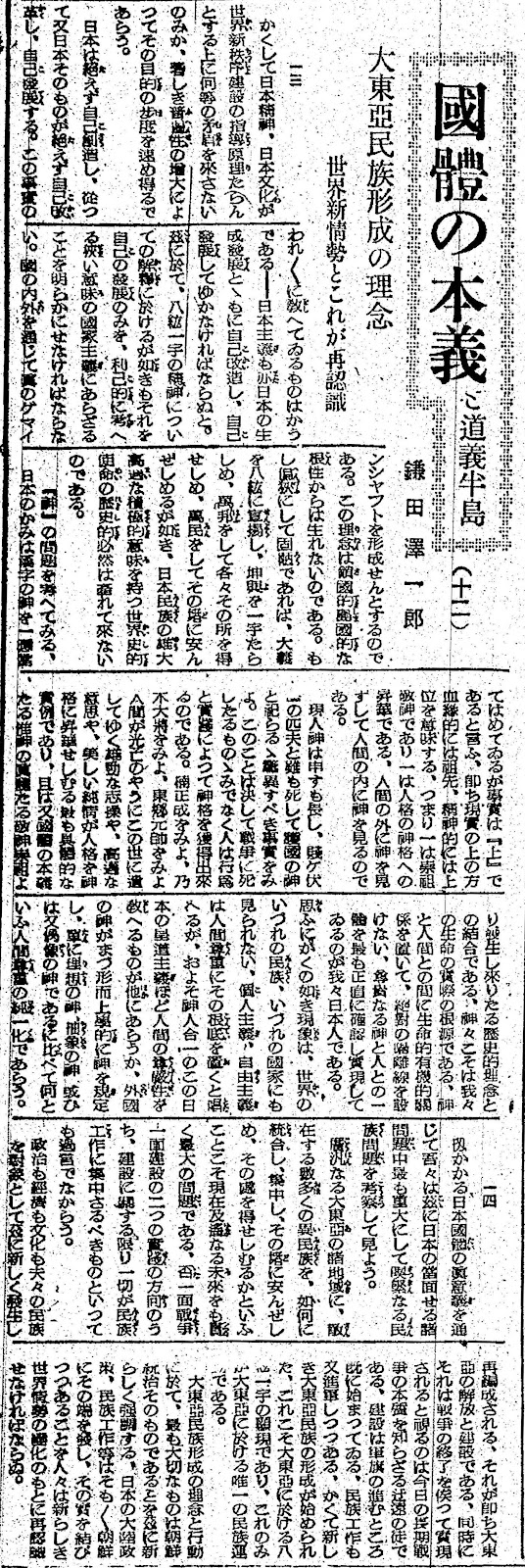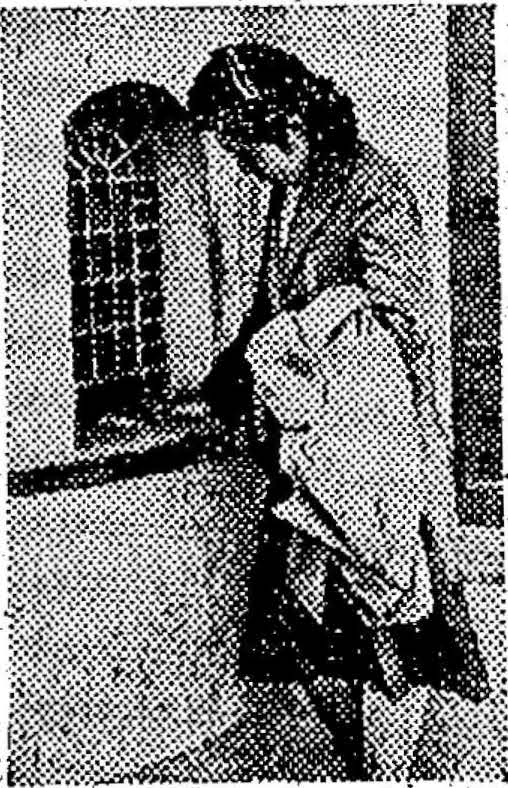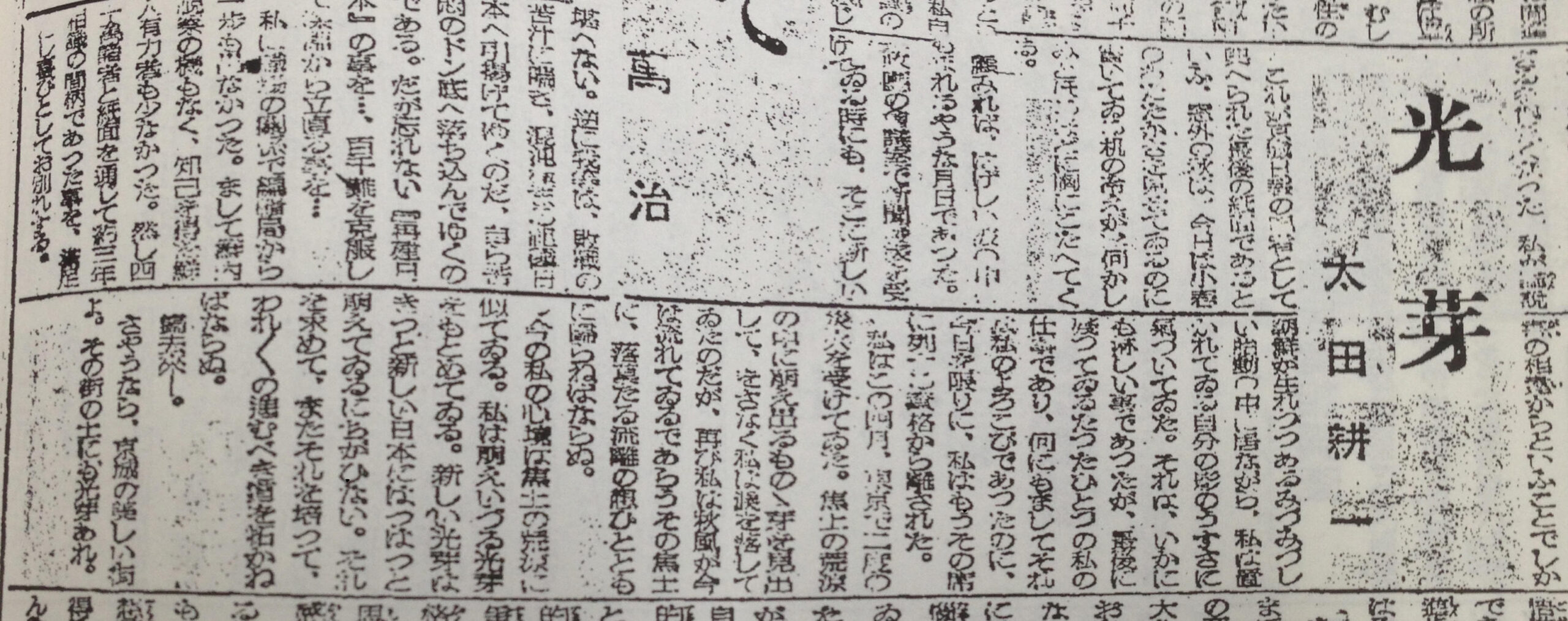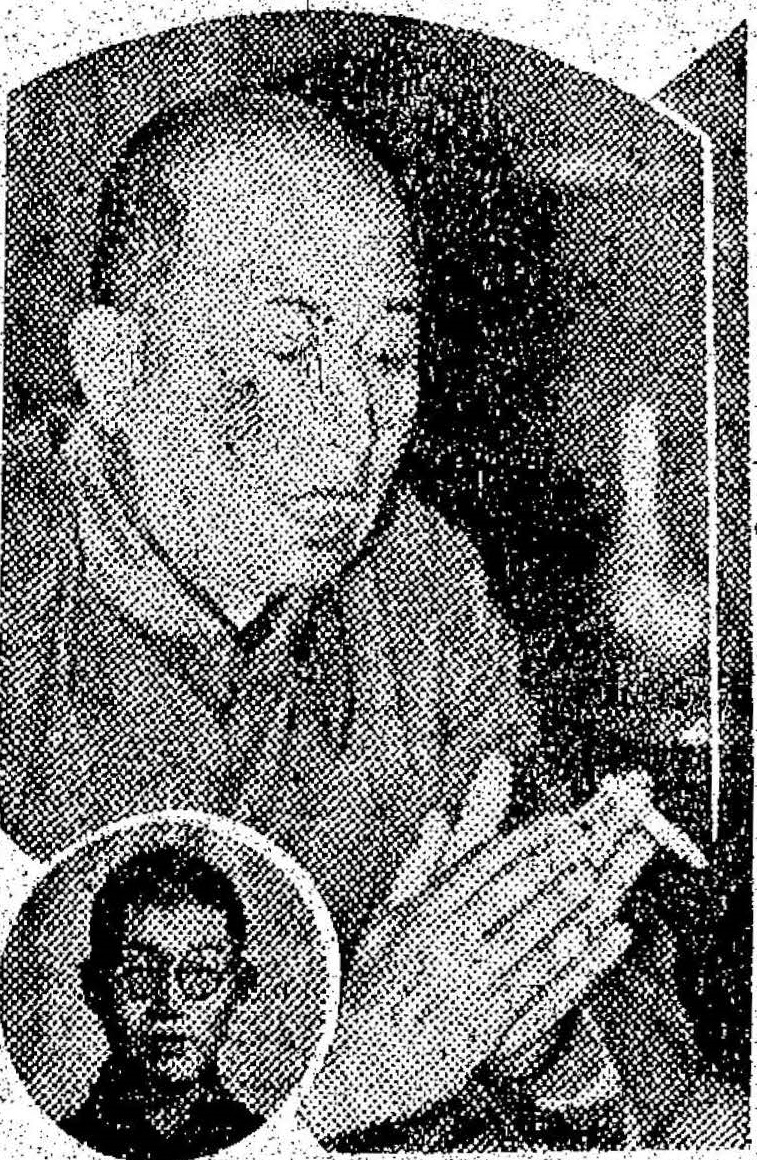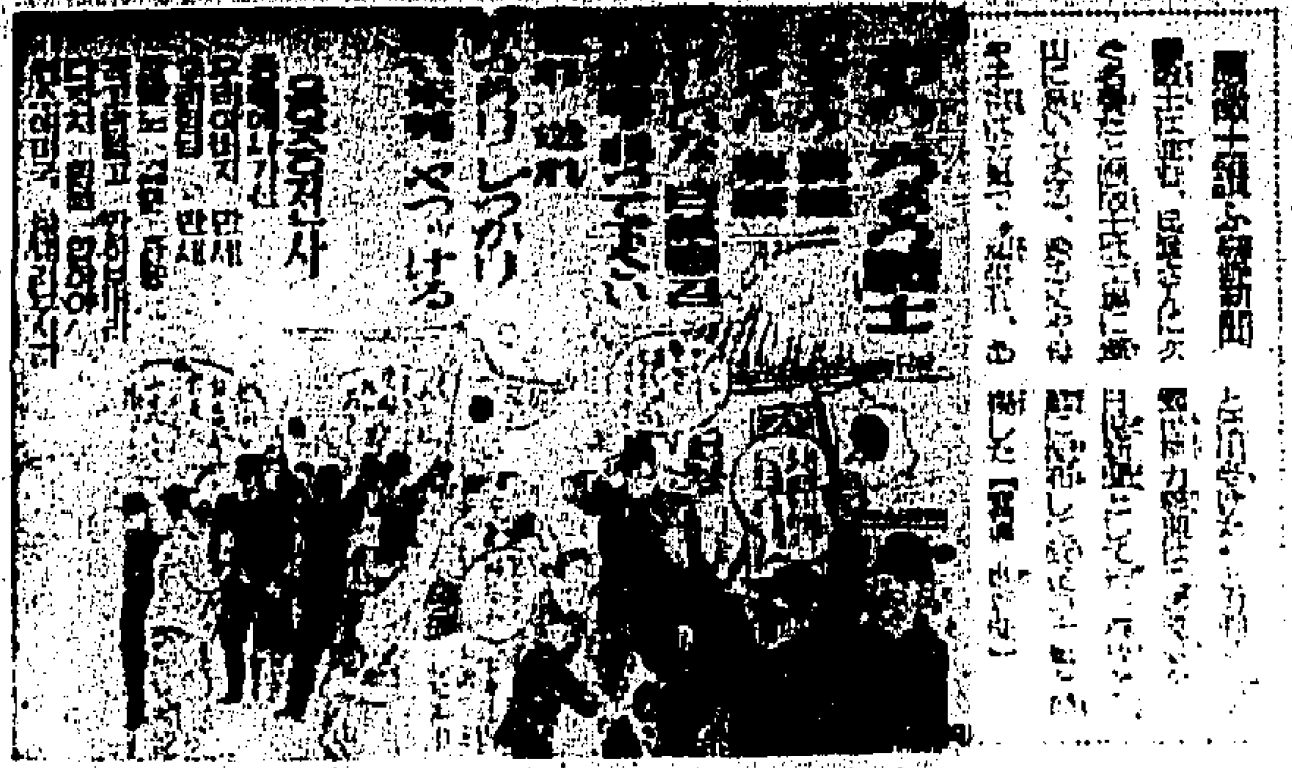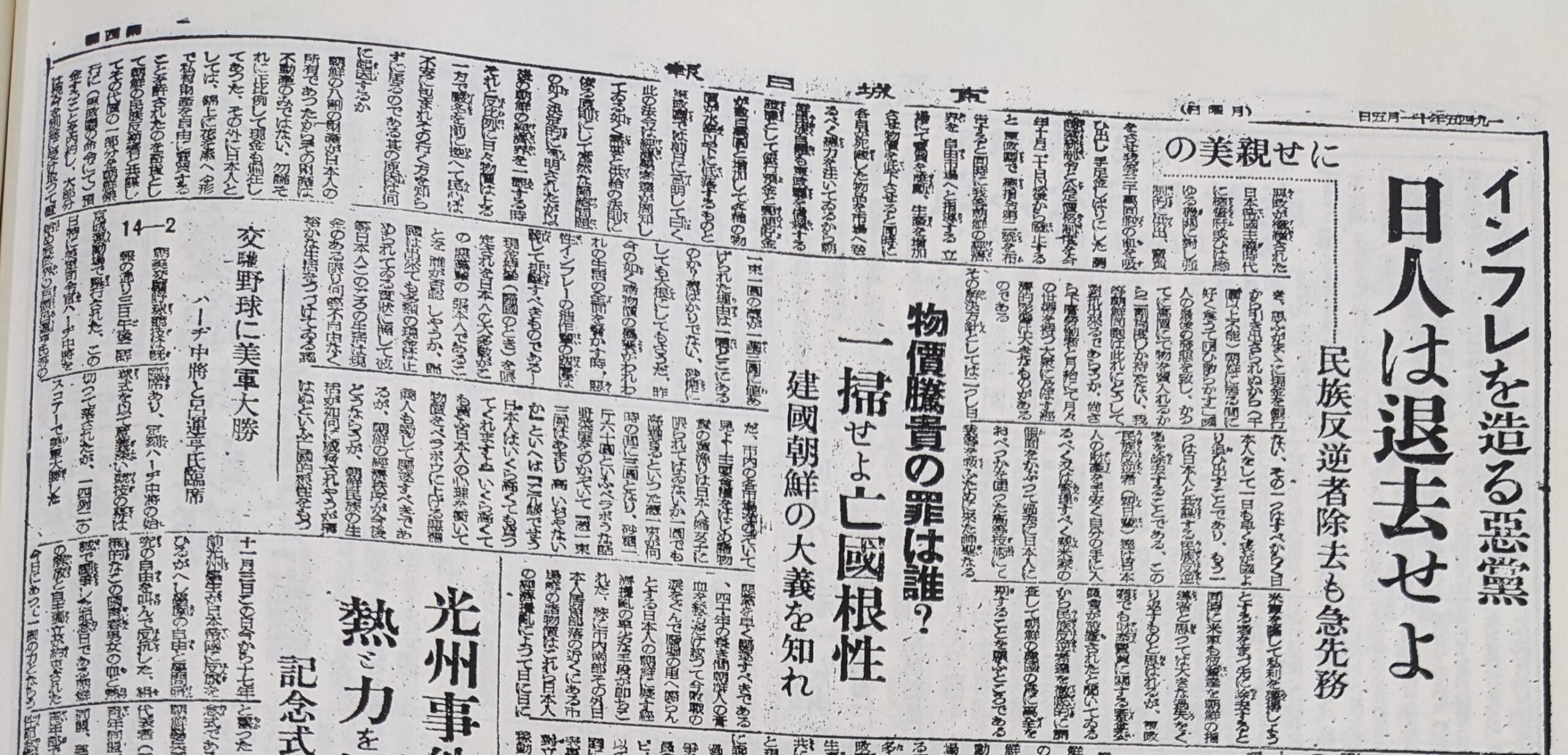
Korea in November 1945 was beset by rampant inflation, which the Koreans editors of newly liberated Keijo Nippo blamed on ‘Korean traitors’ and departing Japanese who liquidated their property and spent cash ‘indulging in lavish eating and wastefulness’
2023-10-11
349
1283
In my recent trip to Seoul, I visited the National Library of Korea and took many photos of pages from the Keijo Nippo newspaper, which was originally established as the official propaganda mouthpiece for the Imperial Japanese colonial regime, which ruled Korea from 1905 to 1945. Around November 1, 1945, a transformative change occurred: the newspaper was taken over by pro-independence Korean employees, shifting its editorial stance drastically and turning it into a platform for Korean liberation.
One of my interesting finds was this editorial article from November 5, 1945, written by Korean writers describing the rampant inflation that was occurring in Korea at the time under U.S. military occupation, newly liberated from Imperial Japanese colonial rule. The Korean editors appeared to blame the inflation squarely on departing Japanese residents who were liquidating their property into cash and lavishly spending it before returning to Japan, and also certain ethnic Koreans who were helping the Japanese residents by buying their property from them. It seems that, like in post-war Japan, there was a sort of euphoric atmosphere in post-war Korea for certain affluent people who had the means to party and have fun, anxious to forget the suffering and privations of war.
The Korean anger and resentment against the colonial regime and the Japanese people are very palpable in the article, as well as the writers’ hostility against ‘ethnic Korean traitors’, or pro-Japanese Koreans who are described as only interested in personal profit as they shift their allegiance from the Japanese to the Americans. We can also see the reverence that the writers held for the ‘sacred U.S. military’.
We can also see the Koreanized Japanese that the writers use, writing ‘日人’ instead of ‘日本人’ for Japanese, and writing ‘親美’ instead of ‘親米’ for pro-American, but they don’t seem to be consistent with this shift, since both forms are used in the article.
[Translation]
Gyeongseong Ilbo (Keijo Nippo) November 5, 1945
The Villains Behind the Inflation
The Japanese Must Leave
The Removal of Ethnic Korean Traitors Pretending to be Pro-American is Also an Urgent Priority
During the era of Japanese Imperialism when corrupt governance was the norm, our 30 million compatriots were exploited through coercive collections and transactions by the Governor-General’s Office and other institutions, leading to economic controls and fixed pricing systems. These measures were said to be abolished after October 20th of this year. When the U.S. Military Government issued General Directive No. 2, it encouraged trade and production, aiming for a free market economy in Korea to decrease commodity prices, and it put its efforts into bringing previously sidelined goods back into the marketplace. As evidence of the Korean people’s own trust in the U.S. Military Government, it was stated the previous day by the U.S. Military Government that bank deposits and postal savings had increased by several million yen, and that various commodity prices were expected to fall below standard levels. This directive had been definitively worded to rely on the laws of supply and demand, as was well-known among those in the economic sphere. However, when we actually observe the subsequent state of Korea’s economy, we see that commodity prices continue to rise day by day. With the harsh winter looming, the public sentiment is enveloped in anxiety, and the future direction of the country is uncertain. What is the cause of this?
Eighty percent of Korea’s assets were owned by Japanese people, and it was not just in the form of real estate, but also cash holdings. Furthermore, as Japanese people, they were allowed to freely buy and sell their private property, adding ‘icing on the cake,’ so to speak. In collusion with ethnic Korean traitors, they made an internal agreement to deposit only a portion of the proceeds into Korean banks, following the directives of the malicious government, while the majority of the funds were set aside to be received separately. That is how, while they cannot freely withdraw cash from the bank (no more than 1000 yen can be withdrawn at a time), they can still indulge in lavish eating and wastefulness while in Korea. This is the final malevolence of people leading the country to ruin. Furthermore, because they purchase goods at high prices, they end up possessing only about 20% [of their original assets]. As Korean compatriots, how can we fight against this? The economic impact is significant on lower-level laborers as well as the general public who live month-to-month maintaining households on monthly salaries.
There are only two solutions. One is to expel the Japanese from our country as soon as possible, and the other is to remove the ethnic Koreans traitors who collude with them. These ethnic Korean traitors (pro-Japanese individuals) aim to cheaply acquire or manage property owned by the Japanese. They put on the facade of being pro-American, and with advanced techniques previously used to curry favor with the Japanese, they try to deceive the sacred U.S. military, which came to save us, in order to gain personal profit. If the U.S. military thinks that these traitors are the leaders of Korea, we believe that they will repeat a grave mistake. We heard that the U.S. Military Government has set up an investigative committee regarding the selling of property, so we hope that the Military Government will thoroughly investigate these ethnic Korean traitors and be fully prepared for the establishment of a new Korea.
Who Is to Blame for Price Inflation?
Wipe Out the Destructive Mentality
Know the Righteousness of Building the Korean Nation
Why has the price of a bundle of green onions skyrocketed from one yen to three? It’s not just green onions. The same thing is happening to sugar and daikon radish. As rampant inflation is threatening our daily life, we should definitely denounce the ones responsible for this malicious inflation. Who can deny that the majority of Japanese, who are limited to carrying cash when going back to Japan, are the main culprits? When considering that they can take lots of cash with them when they go back to Japan, it is no wonder why, these days, the Japanese can continue to lead prosperous lives without any discomfort as long as they have cash.
Take a look at the markets in the city. Is it not true that the ones hoarding the most essential food items and goods are exclusively Japanese women? We hear of outrageous stories like green onions, which were said to be too expensive at one yen a bundle, jumping to three yen a bundle before you knew it, and sugar now selling at 60 yen a kilogram. When you tell a vegetable seller that “Three yen for a bundle of green onions is too expensive,” they reply, “You must be joking. Japanese people will buy it no matter how expensive it is.”
Those immoral merchants who take advantage of the Japanese people’s psychology to inflate prices must also be expelled, but whatever happens to the economic order of Korea in the future, these destructive scoundrels who are indifferent to how they threaten the lives of the Korean people must be removed as soon as possible. For 40 years, they squeezed as much blood from the Korean people as they could, and now they are returning to the ruins of their homeland while wiping their tears in defeat, but these are the underhanded means by which they leave economic chaos behind in Korea. Particularly in the southern part of the city and near the areas where Japanese residents live, due to the economic chaos caused by the Japanese, prices are increasing day-by-day. Thus, we must be determined to quickly implement the complete removal of the malicious residents who do not know the “Righteousness of Building the Korean Nation”.
[Transcription]
京城日報 1945年11月5日
インフレを造る悪党
日人は退去せよ
にせ親美の民族反逆者除去も急先務
悪政が継続された日本帝国主義時代に総督府或いは総ゆる機関に対し強制的に供出、売買をさせ我等三千万同胞の血を吸い出し手足金しばりにした謂商業統制令と公定価格制度を今年十月二十日以後から廃止すると、軍政庁で総指令第二号を布告すると同時に我等朝鮮の経済界を自由市場へと指導する立場にて売買を奨励、生産を増加させ物価を低下させると同時に各自が死蔵した物品を市場へ送るべく総力を注いでいるから、朝鮮民族自体も軍政庁を信頼する証拠として銀行預金と郵便貯金が数百万円と増加して各種の物価が水準以下に低落するものと軍政庁では前日に言明して曰く、此の法令は経済界者達が周知している如く需要と供給の法則に依る決定的に言明されたが、以後の朝鮮の経済界を一観する時、それと反比例に日々物価は上がる一方で厳冬を前に控えて民心は不安に包まれ、その行方を知らずに居るのである。其の原因は何に起因するか。
朝鮮の八割の財産が日本人の所有であったから、その財産は不動産のみではない。勿論、それに正比例して現金も偏在してあった。その外に日本人としては、錦上に花を添える形で私有財産を自由に売買することを許されたのを寄貨として、朝鮮の民族反逆者と共謀して、その代価の一部分を朝鮮銀行に(悪政庁の命令にて)預金することを内約し、大部分は現今を別途に受け取って置き、思うがままに現金を銀行から引き出さられぬから(千円以上不能)朝鮮に居る間に好く食うてくい散らかす亡国人の最後の発悪を致し、かつてに高価にて物を買い入れるから二割程度しか持たない。我等朝鮮同胞は此れにどうして対抗出来るであろうか。尚さら下層労働者と月給にて月々の世帯を持つ大衆に及ぼす経済的影響は大きなものであるのである。
その解決方針としては二つしかない。その一つはすべからく日本人をして一日も早く我が国より追い出すことであり、もう一つは日本人と共謀する民族反逆者を除去することである。この民族反逆者(親日輩)達は日本人の財産を手安く自分の手に入るべく又は管理すべく親米家の仮面をかぶって過去に日本人におべっかを使った高等技術にて我等を救うために来た神聖なる米軍を瞞して私利を獲得しようとする者をまず先に除去すると同時に、米軍も彼輩達を朝鮮の指導者と思っては大きな過失をくり返すものと思われるが、軍政庁でも財産売買に関する審査委員会が設置されたと聞いているから民族反逆者達を徹底的に調査して朝鮮の建国の為に万全を期することを願うところである。
物価騰貴の罪は誰?
一掃せよ亡国根性
建国朝鮮の大義を知れ
一束一円の葱が一躍三円に値あげられた理由は一体どこにあるのか?葱ばかりでない。砂糖にしても大根にしてもそうだ。昨今の如く漬物価の暴騰がわれわれの生活の全面を脅かす時、悪性インフレーの造作輩の跋扈は断じて排撃すべきものである。現金持参(帰国のとき)を限定されを日本人の大多数がこの悪党輩の張本人であることを誰が否認しようか。帰国は出来ても多額の現金は止められている実状に照して彼等日本人このごろの生活は現金のある限り何等不自由なく裕かな生活をつづけている訳だ。
市内の各市場をのぞいて見よ。主要食糧をはじめ諸物貨の買い漁りは日本人婦女子に限られてはいないか。一円でも高過ぎるといった葱一束が何時の間に三円となり、砂糖一斤六十円というベラボウな話。野菜屋をのかぞいて『葱一束三円はあまり高いじゃないか』といえば『ご冗談でしょう。日本人はいくら高くても買ってくれますよ』。
いくら高くても買う日本人の心理を衝いて物価をベラボウに上げる悪徳商人も断じて駆逐すべきであるが、朝鮮の経済秩序が今後どうなろうが、朝鮮民族の生活が如何に威脅されようが構わぬという亡国的根性をもつ悪党を早く駆逐すべきである。四十年の長き間、朝鮮人の膏血を絞るだけ絞って今敗戦の涙をぐんで廃墟の里へ帰らんとする日本人の朝鮮に残す経済攪乱の卑劣な手段は即ちこれだ。殊に市内南部その外日本人居留部落の近くにある市場等の諸物価はこれら日本人の経済攪乱によって…日に日に沸騰する覚悟で建国朝鮮の大義を知らない悪性居留民の完全撤退が速に実施されなければならない。

